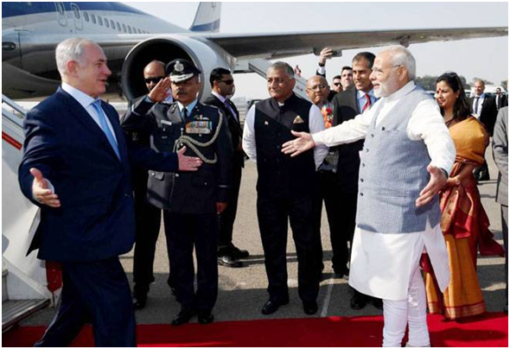In an unprecedented move, India sided with the Israeli position to deny observer status to a Palestinian non-government organization, Shahed, in UN institutions. The vote took place on June 6 at the United Nations’ Economic and Social Council (ECOSOC) after Israel presented a resolution asking for the rejection of Shahed’s application.
India supported the Israeli resolution along with countries such as the US, Germany, France, and the UK. The proposal was passed by 28 votes to 14 with China, Russia and Venezuela, among others, voting against it.
The June 6 vote came to light on June 11 when Maya Kadosh, deputy chief of mission in the Israeli embassy in New Delhi, tweeted thanking India for “rejecting the request of terrorist organization ‘Shahed’ for getting the status of observer status at UN”. Israel claims that the Lebanon-based organization has links with Islamic Jihad and Hamas and has listed it as a terrorist group.
Shahed’s website says it is an independent association “working towards improving the living conditions of the Palestinian refugees in Lebanon.” According to the website, “the association also focuses on promoting the culture of democracy and responsibility among the Palestinian refugees in Lebanon, as a major part of the Palestinian basic rights of return and self-determination.”
The vote confirms the gradual shift in India’s foreign policy in recent years. It also shows growing the ideological affinity between the current far right-wing dispensation in India under Narendra Modi and the Benjamin Netanyahu-led Israeli regime. However, certain reports of India’s abandoning its earlier position on the two-state solution are a bit far-fetched as Shahed does not represent any of the official organs of the Palestinian state.
The vote nonetheless represents a growing desire in the Indian dispensation to move away from the historical cornerstones of India’s foreign policy, which are anti-colonialism, anti-racism and Palestinians’ right to self-determination. The first sign of such a shift was India’s abstention on a resolution proposed in the UN Human Rights Commission on June 3, 2015. The resolution criticized Israel for the violation of human rights during its offensive on Gaza in 2014. Israel had shelled Gaza for 50 days, killing more than 1,400 civilians and injuring over 11,000 people. India’s abstention was heavily criticized by the left and other opposition parties in India. Since then, India has refrained from explicitly supporting Israel in the UN. In December 2017, when the US recognized Jerusalem as the capital of Israel, India had supported a resolution opposing the move in the United Nations General Assembly.
At the same time, India and Israel have moved closer in a number of fields. Israel is now the third largest arms supplier to India and Israeli security firms and Indian law enforcement agencies are believed to be working closely. The strong personal bonds forged by Modi and Netanyahu have played a key role in strengthening the relationship between the establishment of the countries. Sections of the Indian right-wing have hailed the Israeli brutality towards Palestinians as a model for India to follow towards its own Muslim population.
Former Diplomat M K Bhadrakumar, talked to People’s Dispatch on the issue at length. He sees the current vote in the light of larger geopolitical changes in the region and in the world politics. According to him, India’s current position vis-a-vis Israel was a result of both ideological affinities between the regimes of the two countries, as well as an attempt to respond to the changing regional dynamics where “Israel has been able to break the glass ceiling” with certain Arab countries. He argued that though the changes in India-Israel relations started happening during previous Congress regimes, the current dispensation is “unabashedly pro-Israeli.” He added that this current Indian policy was “unsustainable” and against its national interest.
The June 6 vote may not immediately mean a shift in India’s official position but it is definitely a sign of the times and does not bode well for the country’s politics of solidarity with the struggles of the people of Palestine.





